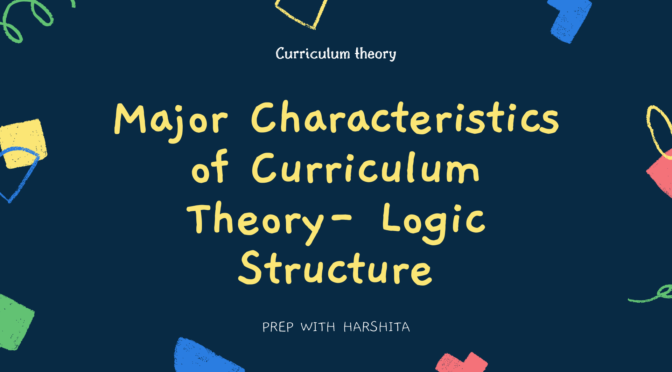Curriculum theory has a logical structure that includes the following major characteristics:
- Ontology: Curriculum theory is concerned with understanding the nature of the curriculum, including its purpose, meaning, and existence. It tries to understand the questions such as “What is the curriculum?” and “What should be the goals of education?”
- Epistemology: Curriculum theory is concerned with the ways in which knowledge is acquired, organized, and transmitted through the curriculum. It explores questions such as “What are the different ways in which knowledge can be organized?”
- Axiology: Curriculum theory is concerned with the values and beliefs which are the curriculum. It explores questions such as “What values should be promoted through the curriculum?”
- Methodology: Curriculum theory is concerned with the methods and processes used to design, implement, and evaluate curriculum. It explores questions such as “What are the different approaches to curriculum design?”
- Pragmatics: Curriculum theory is concerned with the practical implications of curriculum, including how it is implemented in educational settings and how it affects learners. It explores questions such as “How can curriculum be adapted to meet the needs of diverse learners?”


